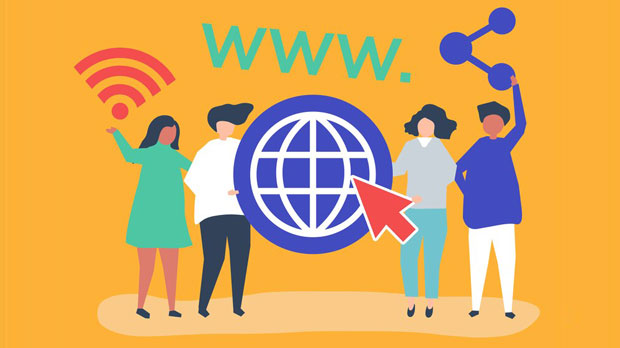Proxies are powerful tools that can offer enhanced privacy, security, and performance for internet users. They act as intermediaries between users and websites, helping to mask the user's real IP address. There are several types of proxies, each with distinct functions and use cases. Among the most common are HTTP proxies, sock s5 proxies, and residential proxies. In this article, we will explore the characteristics, advantages, and drawbacks of these three proxy types to help users determine which is best suited for their needs. 1. HTTP Proxy: The BasicsAn HTTP proxy is one of the most commonly used proxies. It works by forwarding requests from a client (such as a web browser) to a web server. HTTP proxies are primarily designed to handle HTTP and HTTPS traffic, making them ideal for browsing the internet. The proxy server will receive the user’s request, forward it to the destination server, and then send the response back to the user.The key advantage of HTTP proxies is that they can cache web pages and other content to improve browsing speeds. This means that frequently accessed websites can load faster, saving time and reducing bandwidth usage. Additionally, HTTP proxies offer anonymity by masking the user's IP address, making it harder for websites to track or identify the user. However, they do have some limitations. HTTP proxies only work with web traffic and do not support other types of protocols such as FTP or P2P.2. socks5 proxy: Flexibility and VersatilitySOCKS5 is another popular proxy protocol that provides more versatility than HTTP proxies. Unlike HTTP proxies, which are limited to handling web traffic, SOCKS5 proxies can handle any type of internet traffic, including email, FTP, and even peer-to-peer (P2P) connections. This makes SOCKS5 proxies highly flexible and capable of handling a wide range of applications.One of the key features of SOCKS5 proxies is their support for both UDP (User Datagram Protocol) and TCP (Transmission Control Protocol) traffic. This gives users more options for managing network traffic, making SOCKS5 ideal for activities like online gaming, video streaming, or using P2P services. Additionally, SOCKS5 proxies offer enhanced security by providing better authentication and encryption mechanisms. Users can connect through SOCKS5 proxies without revealing their original IP addresses, making it a strong option for those seeking privacy.However, while SOCKS5 proxies are versatile, they can be slower than HTTP proxies, especially if the proxy server is under heavy load. Users may experience delays in loading content, which can affect browsing or streaming experiences.3. residential proxy: The Most Authentic OptionResidential proxies are unique in that they provide real, residential IP addresses, which are assigned to actual physical devices like smartphones, computers, or home routers. These IPs are provided by Internet Service Providers (ISPs) rather than data centers, making them appear as legitimate user connections.The key advantage of residential proxies is that they are much harder to detect and block by websites or services. Since the IP addresses are tied to real physical locations, they are more trustworthy in the eyes of websites compared to data center proxies, which are often flagged as suspicious. This makes residential proxies ideal for activities such as web scraping, social media automation, or sneaker bots, where anonymity and reliability are crucial.One of the downsides of residential proxies is their higher cost. Because they use real residential IPs, they tend to be more expensive compared to other proxy types like HTTP or SOCKS5. Additionally, residential proxies may have slower speeds due to the potential limited bandwidth associated with individual home internet connections.4. Comparing HTTP, SOCKS5, and Residential ProxiesWhile HTTP, SOCKS5, and residential proxies serve similar purposes, they are distinct in terms of functionality, performance, and use cases. Here’s a quick comparison:- HTTP Proxies: Best for basic web browsing and caching, but limited to HTTP/HTTPS traffic.- SOCKS5 Proxies: Versatile, capable of handling a variety of internet traffic, including web browsing, email, and P2P. It’s a good choice for users who need flexibility.- Residential Proxies: Provide the most authentic and reliable browsing experience with real IPs from ISPs, making them harder to block. However, they are more expensive and may have slower speeds.5. Use Cases for Each Proxy TypeEach type of proxy comes with specific use cases, and choosing the right one depends on your needs.- HTTP Proxies: These are ideal for casual web browsing and businesses that need to cache web content to optimize page load times. They are also useful for users who want basic privacy without needing to access more complex services.- SOCKS5 Proxies: Because of their versatility, SOCKS5 proxies are commonly used for gaming, streaming, or using P2P services. They provide a better solution for users who need to handle multiple types of internet traffic while ensuring security and anonymity.- Residential Proxies: These are most useful for tasks like web scraping, sneaker buying, or other activities that require a large number of IPs with minimal risk of detection. They are also preferred for managing multiple social media accounts without raising suspicions.6. Choosing the Right Proxy for Your NeedsWhen choosing a proxy type, it’s important to consider your specific use case, privacy requirements, and budget. If you need a simple solution for browsing the web anonymously, an HTTP proxy may suffice. For users who need more flexibility and support for various internet services, a SOCKS5 proxy is a good choice. On the other hand, if you need to perform tasks that require high levels of anonymity, such as web scraping or managing multiple online accounts, residential proxies will provide the most reliable and undetectable option, despite the higher cost.Ultimately, the right proxy type depends on the user's needs, goals, and willingness to invest in privacy and security. By understanding the features and capabilities of each proxy type, users can make informed decisions about which proxy solution will best serve their purposes.Proxies are essential tools for enhancing privacy, security, and performance on the internet. Among the most common types are HTTP proxies, SOCKS5 proxies, and residential proxies, each serving different needs. HTTP proxies are ideal for basic web browsing, SOCKS5 proxies offer greater versatility for handling a range of internet traffic, and residential proxies provide the most authentic and reliable connections for high-stakes activities. By understanding the strengths and limitations of each type, users can make the best choice to suit their individual needs.
May 07, 2025



































































